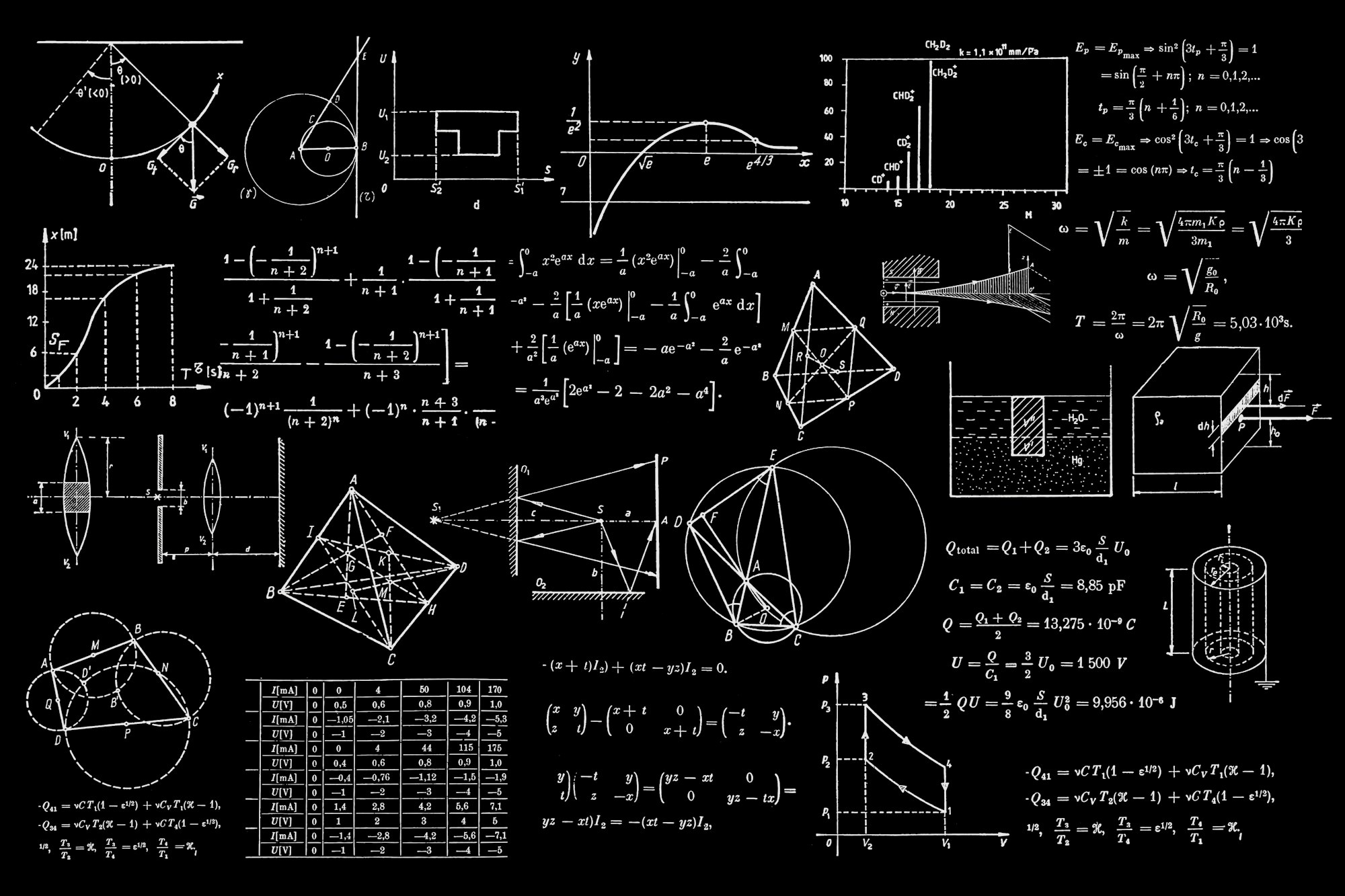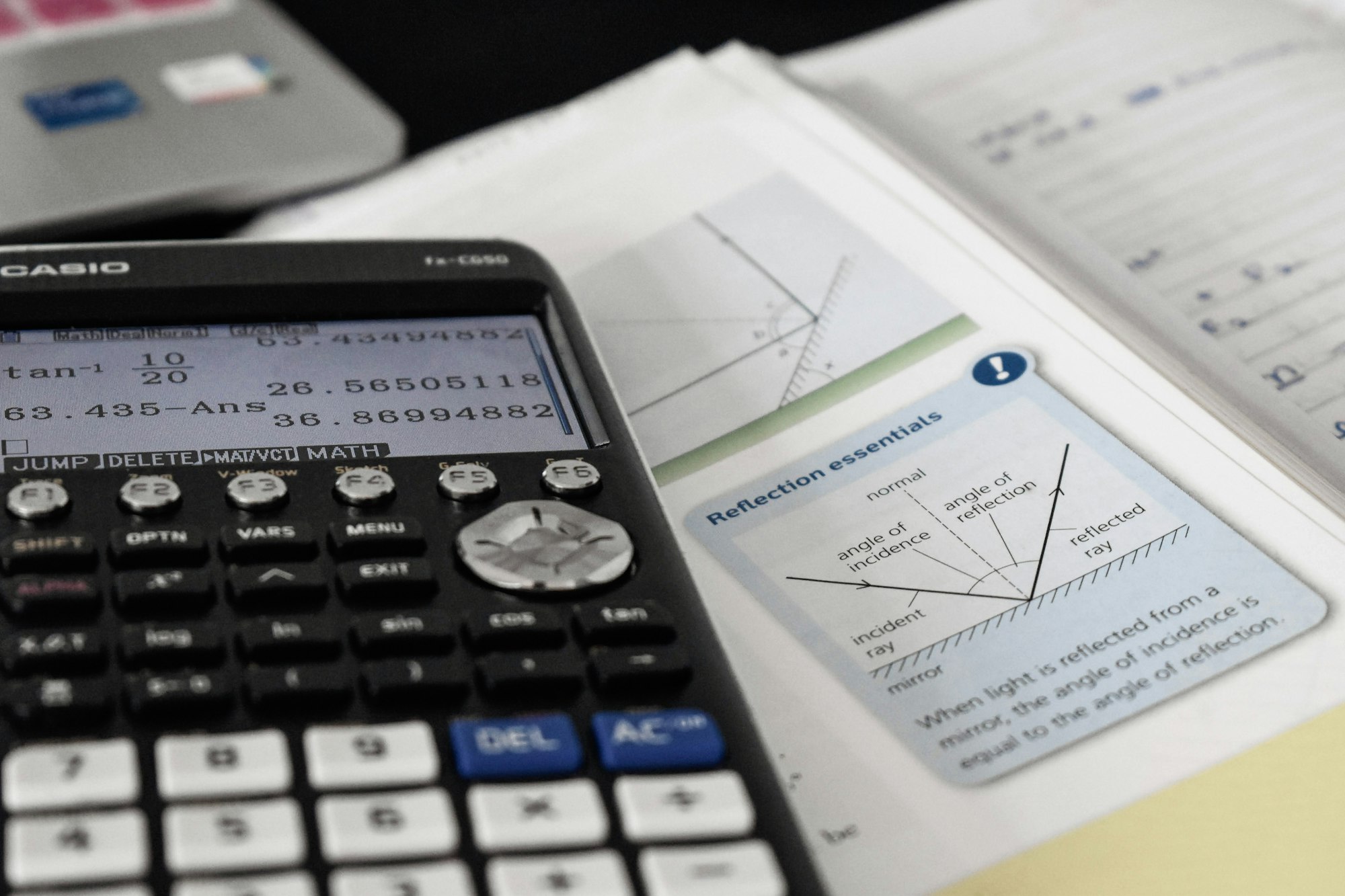It does not matter what Mathematics subject you are studying; this is the ultimate guide for you. Find out what to expect in the QCAA external exams, and the study method I used to score high 90s for Mathematical Methods and Specialist Mathematics.
- What are the Mathematics External Exams like?
- What are the Different Question Types?
- How to Start Studying?
- Study Tips
What are the Mathematics External Exams like?
Here is a basic overview of what to expect in the Mathematics external exams, which test your knowledge on content learned in Unit 3 and 4:
| Subject | Paper | Details | Time Allocation |
| General Mathematics | Paper 1 | - short responses and multiple choice questions - simple familiar questions | 5 minutes reading time 90 minutes working time |
| Paper 2 | - short responses to complex familiar and complex unfamiliar questions - QCAA-approved scientific calculator allowed - Formula book provided | 5 minutes reading time 90 minutes working time | |
| Mathematical Methods and Specialist Mathematics | Paper 1 | - simple familiar, complex familiar and complex unfamiliar questions - 10 MCQs - Calculator NOT allowed - Formula book provided | 5 minutes reading time 90 minutes working time |
| Paper 2 | - simple familiar, complex familiar and complex unfamiliar questions - 10 MCQs - QCAA-approved scientific calculator allowed | 5 minutes reading time 90 minutes working time |
What are the Different Question Types?
For all three mathematics subjects, you will get:
- Simple familiar questions (60% of total marks)
- Complex familiar (20% of total marks)
- Complex unfamiliar questions (20% of total marks)
| Simple Familiar | Complex Familiar | Complex Unfamiliar |
| Relationships and interactions are clear and have few elements | Relationships and interactions have various elements with connections that are made with subject matter within and/or across the domain of mathematics | Relationships and interactions have various elements with connections that are made with subject matter within and/or across the domain of mathematics |
| All information to solve the question is identifiable | All information to solve the problem is identifiable | All information to solve the questions is not immediately identifiable and students will have limited prior experience to them |
For all papers, these are what you can expect from the multiple-choice questions:
- Relatively easier, require limited working out, and are done relatively quickly
- Can include requiring calculations, analysing graphs, using formulas, point-blank definitions, and more
- Each multiple-choice question is worth 1 mark

How to Start Studying?
1. Understand the Content
- Read the syllabus/subject matter for the subject. It can be found on the QCAA education website for every senior subject conducted in Queensland. This contains dot-points that demonstrate what can be tested on in your external exam.
- Annotate the syllabus for Units 3 and 4 using a traffic light system:
| Green | Yellow | Red |
| Content you understand well and can answer simple, complex familiar and complex unfamiliar questions relating to them | An “okay” understanding of a specific dot point, and can answer simple familiar and some complex familiar questions | Limited understanding of the matter, and have difficulty in completing simple familiar questions for said topic |
Below is an example of what this may end up looking like:
- If this colour coding system is not helpful for you, find another method that helps to categorise the topics you need more help with.
If your annotated syllabus ends up looking a little too red, a private tutor from KIS Academics can help clarify your doubts, and boost your confidence!
2. Do More Practice Questions!
- Collate all the resources that are available to you: revision papers/questions given by your school, questions available in the allocated book your school uses, past external exam papers etc. You can even use other states' final past papers if they fit the QCAA syllabus.
- After collating your resources, create a week-by-week timetable of the question banks and exams you will complete leading up to your externals.
- When doing past exam papers, replicate the “in-exam experience”. Use a timer, print-out of the appropriate formula sheet, write on paper, and preferably be in a quiet room.

3. Critically Review your Mock Exam
- Mock exams help you to practice:
- The exam format
- Timing
- The pressure of sitting in a hall
- Getting comfortable with seeing a question you don’t know how to solve straight away
- After receiving your mock exam results, identify what topics you struggled with. Those are the topics you need to focus on in your next few study sessions.
Study Tips and Tricks
1. Always have a Printout of the Formula Sheet
- This helps you be more familiar with your formula book, especially what formulas/content is not on it.
- The more familiar you are with the formula sheet, the more efficiently you will be completing your exams.
- Have the formula sheet with you whenever you are studying, whether it be your a question bank, or past year exams.
2. Learn Permissible Calculator Tricks
- Your graphics calculator will save you time, and get rid of silly mistakes especially for Specialist Mathematics and Mathematical Methods.
- Learn how to utilise tables, graphs, equation solver, and other features to complete questions. For example, if you are doing simultaneous equations, it may be more efficient to graph both equations and find the intercept of the two.
3. Always Try to Get Some Marks!
- If you are stuck on a question, do not just give up!
- Draw a diagram, write down the appropriate formula, or even just complete certain calculations. Especially for complex unfamiliar questions that are worth a substantial number of marks (6 to 10), you might be able to score some marks!
- If you are stuck on a multiple-choice question, you can try guessing the answer. You have at least a 25% chance of getting it right!

Conclusion
Mathematics does not have to be tough, especially if you have a study method that works well for you. This is what worked for me, and hopefully it will help you too. Should you require more personalised help, a private tutor from KIS Academics is what you are looking for!
FAQs
How much are the QCE Maths external exams worth?
- For all mathematics subjects, Paper 1 and 2 of the external exams are worth a combined 50% of your total QCE score for that subject.
- For General Mathematics: Paper 1 is worth 30% and Paper 2 is worth 20% of your overall grade in the subject.
- For Specialist Mathematics and Mathematical Methods: Paper 1 and 2 are equally weighted at 25% each of your overall grade in the respective subject.
What should I do on the night before my Math exam?
- It’s important to take it easy and stay in a “relaxed” state of mind. Do an activity that relaxes you (e.g an episode of a tv show, watch some TV, have a chat with friends/family, etc).
- You may do some extra maths questions or look over a topic that you may not feel overly confident on, but try not to stress too much over it.
- Get sufficient sleep before the exam! Try and go to sleep at an appropriate time, and sleep for at least 8 hours.
What do I do if I come across a question I can’t solve immediately?
- The best thing to do is mark the question/page and skip it. You can come back to it later when you are done with other questions.
- Stay as relaxed as possible, and do not panic. If you are panicking, try taking some deep breaths before resuming the paper.
- Ensure that you are in the right headspace to answer other questions as accurately as possible.
Written by KIS Academics Tutor for QCE Specialist Mathematics and Mathematical Methods, Ragulan Gnanavel. He also provides assistance for Physics, English and Modern History assignments. Ragulan is currently pursuing a Bachelor of Actuarial Studies and a Bachelor of Commerce at UNSW. He has outstanding credentials as a tutor, and you can view Ragulan’s profile here and request him as a tutor.
Want more personalized study guidance to help drastically improve your marks? A private tutor from KIS Academics can make the biggest difference!







